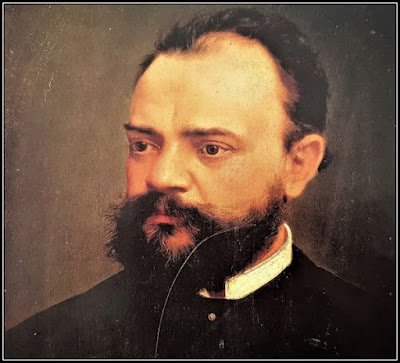 |
| Portrait of Antonín Dvořák, one of the most influential Czech composers of the Romantic era. |
Although the founder of the Czech national school of music was Bedřich Smetana, it was Antonín Leopold Dvořák who carried the inexhaustible wealth of Bohemian musical tradition far beyond national borders and into the heart of the Western world. His music reflects a rare and harmonious balance between academic discipline, instinctive craftsmanship, and the vivid colors of folk expression.
A gifted assimilator of influence, Dvořák absorbed every meaningful musical stimulus he encountered—whether as a diligent student or as a reflective traveler—and transformed it into a deeply personal musical language. His works follow the impulses of emotion rather than rigid logic, resulting in music that feels sincere, spontaneous, and warmly human.
Often, his melodies seem to smile with the simplicity of everyday life, yet they never lose sight of artistic refinement or emotional depth. Dvořák speaks directly to the listener, without condescension, offering music that is approachable but never superficial.
A true bridge-builder between folk tradition and cultivated art music, Dvořák mastered the classical forms while infusing them with the rhythmic vitality and melodic freshness of both the Old and the New Worlds. His achievement does not rest on radical innovation or stylistic rupture, but on the rare ability to unite diverse musical elements with natural ease and authenticity—without subordinating one world to another.
Comments
Post a Comment